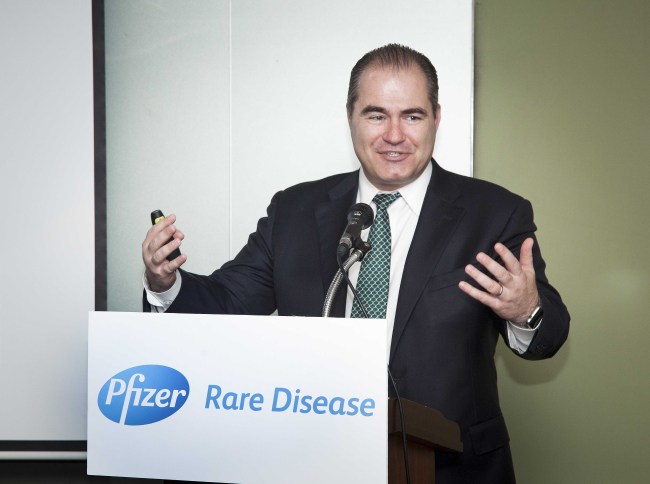Bio
[INTERVIEW] Pfizer eyes collaboration with Korean firms for gene therepy
[THE INVESTOR] Pfizer, the world’s largest drug maker, is searching for Korean companies and talent in gene therapy as a part of its drive to become a leader in the sector, according to a top executive on July 27.
“We are paying close attention to top specialists in Korea who are creating various breakthrough innovations in key areas such as gene research,” said Michael Goettler, global president of Pfizer Rare Disease in an email interview with The Investor.
 |
Michael Goettler, global president of Pfizer Rare Disease, Innovative Health Business |
He said the company is committed to strengthening its presence in gene therapy through partnerships and collaborations with more than two decades experience in rare diseases.
“We are confident that Korean biopharmaceutical companies will be able to prove their competitiveness in the global market if they develop orphan drugs that meet global regulatory and compliance standards,” he said.
Currently, the Korean government is seeking to foster biotech and medical companies, aimed at securing the nation’s new growth engines.
With the initiative, Korean firms like Hanmi Pharmaceutical, Celltrion and Samsung Bioepis have been forging partnerships with global drug makers such as Boehringer Ingelheim, Merck and Sanofi to enter large pharma markets like the US and Europe.
Pfizer had reached an agreement with Celltrion for rights to its biosimilar Inflectra, but the US pharma giant hasn’t signed any deals for orphan drugs developed by Korean firms so far.
“(For Korean firms) It would be good to consider early collaborations with global companies as they have the framework in place to ensure global regulatory and compliance standards are met as the orphan moves along its journey to commercialization,” Goettler said.
He said there is the high unmet medical need for rare disease medicines with only 5 percent of the approximately 7,000 different rare diseases identified having approved treatments available.
He also stressed the importance of government’s role in fighting orphan diseases.
“Policy support is essential in this area and we applaud the Korean government’s decision to implement the Rare Disease Management Act which was legislated in late 2015 as a comprehensive plan to implement policies covering the prevention, treatment and research for rare diseases,” he said.
As a part of such efforts, the government supports 90 percent of the cost of treatments for patients with 162 designated rare diseases for five years.
“Pfizer Korea will continue to work in partnership with the government to improve access to innovative medicines for patients in Korea and to look for partnerships and collaborations which will ensure we continue to make a meaningful impact on society.” he said.
By Park Han-na (hnpark@heraldcorp.com)








